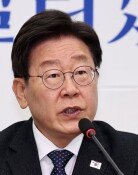Property tax politics
Property tax politics
Posted October. 29, 2020 07:41,
Updated October. 29, 2020 07:41
Deputy Prime Minister Hong Nam-ki said lowering property taxes will be discussed and announced in the near future in Wednesday’s ministerial meeting on the housing market. The government and the ruling Democratic Party of Korea are currently reviewing the possibility of decreasing property tax rates by up to 50 percent on property whose official value is under 900 million won.
The latest announcement came a day after the government announced a new housing measure that would increase official property values by 90 percent to reflect market values, pushing up property and real estate tax rates, based on a report submitted the Korea Research Institute for Human Settlements to the Ministry of Land, Infrastructure and Transport. These two seemingly contrasting measures have caused confusion among the public, but they actually send out a consistent message. They both aim to more than double the property tax on houses over 1.5 billion won within five years while spreading the increase over a decade for properties under 900 million won. They even offer tax benefits for the latter to prevent a possible backlash.
When implemented, the elderly and retirees who do not have an income should pay over 10 million won a year in tax if they live in a house that is relatively pricy. They would pay rent for their own houses to the government as people say. There will be people who have climbed up the property ladder their entire life and finally bought a nice house, only to sell it as soon as they get retired because they cannot pay the tax. The property tax has increased more than 70 percent over the past three years. Although more burden has also been placed on people who have more affordable houses, the official property value to market price ratio is still low, and the increase has not been as steep for them. Nevertheless, the government and the ruling party are only focusing on reducing property taxes on low- to medium-priced properties.
Many experts argue these measures are born out of political interest. They are designed to quell complaints of home owners by imposing punitive and discriminative taxes on expensive houses and give a sense of satisfaction to those who do not own a house. There cannot be any other reason to increase tax rates, dismissing concerns about fair taxation and the principle of no taxation without law. Economic policies that only consider political interest rarely produce intended results, and, even worse, they often create other problems. The new tax measures that will burden the next administration should be reconsidered.







